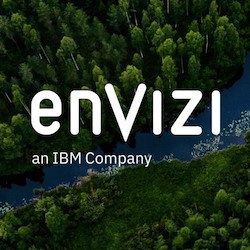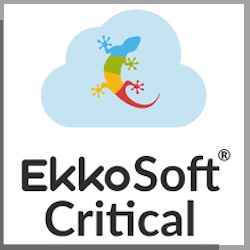For the global business community, sustainability needs to be a top priority. The supply chains of eight industries account for more than 50% of global emissions, according to the World Economic Forum.
Even if your company isn’t involved in food, construction, fashion, fast-moving consumer goods, electronics, automotive, professional services or freight, it still has an important role to play in saving the planet. Like it or not, as regulators, investors and customers grow increasingly focused on slowing down climate change, most companies are realizing that their first order of business needs to be to make their supply chains more sustainable.
Fortunately, you are not alone. A variety of services and technologies are now available that can help even the most complex company reengineer its supply chain in a much more sustainable manner.
The role of technology
Take Oracle, for example. Ganesh Rajasekaran, the Associate Vice President (Global) for HCLTech’s Digital Business – Oracle Practice, says the software giant now offers a variety of tools that can help companies develop more sustainable supply chains:
- Much of the climate impact of a product is determined on the drawing board. By the time it reaches manufacturing, it’s too late to make meaningful reductions. Oracle Product Lifecycle Design can help by enabling designers to determine, for example, whether they have used as much recycled material as possible in a new product.
- The Oracle Cloud Enterprise Performance Management system can train its machine learning tools to uncover anomalies, hot spots or extreme variances, making it easier to correct course and meet ESG goals. Embedded in the cloud, it can also use machine learning to model, plan and predict outcomes. At the same time, Oracle Maintenance and Oracle IoT Asset Monitoring can track the performance of a variety of assets to increase their efficiency and ensure that machinery and materials are all being handled in accordance with environmental regulations.
- The Oracle Fusion Cloud Supply Chain Management system can simplify planning for ESG, through streamlined maintenance, field service and more sustainable procurement. It can also help manufacturers find the most carbon-efficient mode of transportation from the manufacturer to the consumer. One leading US-based company that runs the Oracle SCM cloud and Oracle Cloud Demand Management to track over 1,000 different products, uses the insights the software suite gathered for the company to generate more accurate demand forecasts. Just three months after adoption, the company began to see positive results: more accurate forecasts reduced its food disposals by more than 50% annually while trimming its inventory costs by 5-10%.
- The SCM suite can be used to facilitate more circular solutions as well. For example, HCLTech leveraged insights drawn from the Oracle Cloud SCM system to create a circular packaging solution for one client, a leading US-based conglomerate, where pallets used to ship material to the customer are returned to the supplier, creating a virtuous cycle. The result was less packaging, less waste and lower energy costs. Such solutions are only the beginning of the system. “If you look at the Oracle Cloud SCM, it has got the end-to-end capability to do it right from the demand management on the supply side and then on the manufacturing and the transportation side,” says Ganesh Rajasekaran. “If you know how much is required by when for the factory and if you have a very sophisticated demand management solution, obviously you will reduce wastage because you know exactly how much to buy and when to buy it.”
According to Ganesh Rajasekaran, such systems typically entail a one-time, upfront implementation and integration cost followed by ongoing annual subscription fees. However, these costs are often offset by savings in important environmental categories such as energy, water or materials usage. For example, EY analysts estimate that the insights that can be gained by building a digital twin of your supply chain can cut carbon emissions by up to half and reduce your costs by up to a third.
Don’t bin, win!
Other analysts have also found that more sustainable supply chains can be cheaper, more efficient and more resilient. In fact, much of today’s waste is likely to become tomorrow’s opportunity. McKinsey & Co., for example, estimates that by 2030, artificial intelligence could eliminate as much as $127 billion in food waste every year.
If HCLTech’s recent experience with Oracle’s supply chain management tools are anything to go by, business in the sustainability economy will require more creativity, more data and advanced analytics and a more holistic sense of product lifecycles. The good news, according to Ganesh Rajasekaran, is that not only is it a challenge that can be met, but doing so can be a win for every stakeholder.
Author: Bennett Voyles is contributing writer at HCLTech. More: Read more HCLTech guest blogs.




